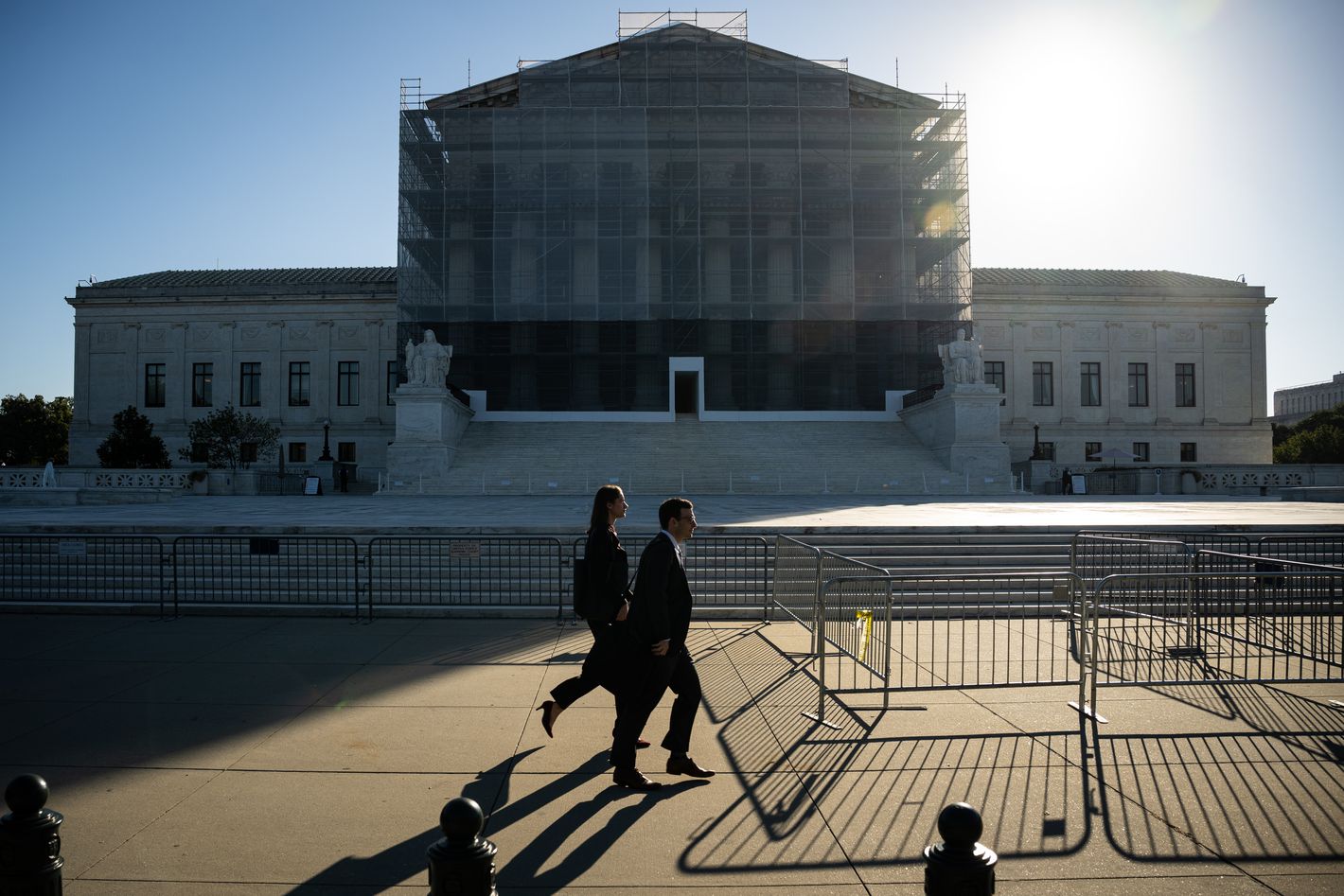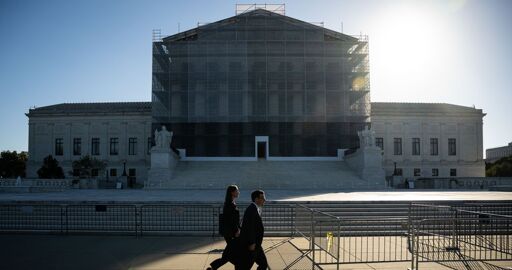
Photo: Graeme Sloan/Bloomberg/ Getty Images
Near the end of its previous term, the Supreme Court made a surprising request for a reargument of Louisiana v. Callais, a case about the application of the Voting Rights Act to congressional redistricting. The Court was clearly inviting a challenge to the constitutionality of a key VRA provision that has prevented the dilution of Black voting influence.
The most recent time the Court applied the VRA in a similar case in Alabama, a 5-4 majority that included Chief Justice John Roberts and Justice Brett Kavanaugh held that states still have to provide opportunities for minority voters to be represented in Congress via its redistricting decisions. Today’s oral arguments in the Louisiana case suggested the Court’s conservatives could be on the brink of gutting the VRA decisively, probably on the grounds that race-based remedies for past voter discrimination have a sell-by date and thus violate the equal-protection provisions of the 14th and 15th Amendments. Alternatively, the Court could craft a decision that makes it extremely difficult for voting-rights advocates to win VRA cases, rather than one that explicitly overturns the law.
Under either scenario, the effect on the congressional representation of non-white voters could be devastating, particularly in southern states totally controlled by Republicans. A report from two voting-rights advocacy groups concluded that the Supreme Court gutting VRA requirements for redistricting could lead to 19 new Republican U.S. House seats by decimating Black and Latino Democratic representation, as NPR explains:
If mapmakers in those states are no longer required under Section 2 [of the VRA] to draw districts where racial minority voters have a realistic opportunity of electing their preferred candidate, Louisiana, Florida, Georgia, Missouri, North Carolina and Texas could end up with fewer Democratic representatives in Congress. Alabama, Mississippi, South Carolina and Tennessee could lose all of theirs, the report finds.
As much as 30 percent of the Congressional Black Caucus’s membership could be at risk, the report concludes. Even if that’s a worst-case scenario, it shows the huge stakes of this decision, particularly when President Trump is demanding Republican-controlled states redraw congressional maps to thwart a likely Democratic takeover of the U.S. House after the 2026 midterms.
Timing is a big factor in the potential impact of this Supreme Court decision. Typically, the Court holds big decisions until the end of the term, which would be next June or July — too late to affect the midterms. In the past, the Court has tried to avoid decisions that clearly affect elections just over the horizon. Both of these factors suggest the Court will try to avoid a decision that opens the door to immediate action by the states.
However, the State of Louisiana (backing the plaintiffs in the Callais case) has asked the Court to hand down its decision by January 2026, which is prior to the state’s filing deadline for 2026 candidates. If the Court does rush to judgment in time for Republican legislators and governors to initiate a whole new round of redistricting actions before the midterms, it could all but lock up GOP control of the House after the midterms, even if Democrats win the national popular vote handily. Of all the favors the conservative majority of the Supreme Court has done for Donald Trump, this could top everything. If Republicans maintain a trifecta in the 2026 elections, it will enable the power-hungry chief executive to close out his second term without significant congressional opposition.
In the longer view, the Court has been gradually removing any restraints on blatant gerrymandering by state legislatures. So in revisiting Callais, it could bake right into the cake the power of a highly motivated GOP and MAGA movement to hang on to power regardless of popular opposition. A Senate that already gives small rural states disproportionate representation, combined with a racially and politically gerrymandered House, is an ideal formula for maintaining conservative control of the country in perpetuity. That is a very big deal, and making noise about it is a good idea while the Court is determining its timetable.
More on Politics
Democratic Divisions Loom in Fight to Take on Susan CollinsNew York Pols Attack One Another Over Racist GOP TextsAn Obamacare Deal Could End the Shutdown. It Won’t Be Easy.
From Intelligencer - Daily News, Politics, Business, and Tech via this RSS feed

